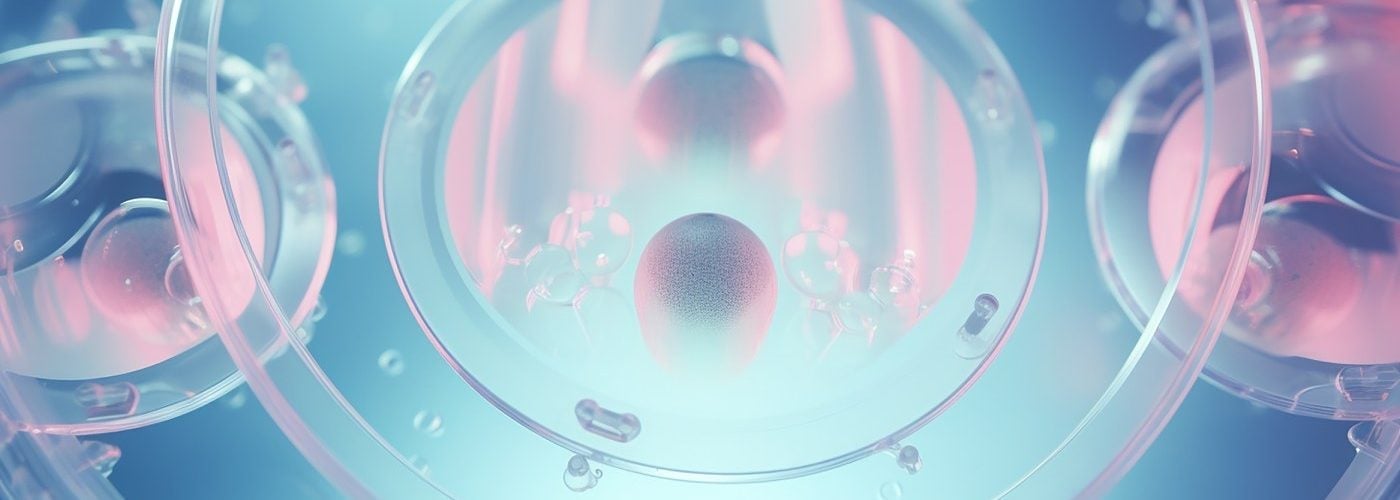
When a woman embarks on the journey to motherhood through reproductive medicine, eggs play a crucial role in the future success of treatment. That’s why, in this article, we discuss egg quality, what causes poor quality, signs of bad egg quality, and potential measures to improve it.
What Is egg quality?
When we talk about egg quality, we’re referring to the egg’s ability to be fertilized and develop into an embryo. Higher-quality eggs have a greater chance of resulting in a successful pregnancy. One of the factors contributing to poor oocyte quality is a woman’s age. As time passes, not only does the number of available oocytes decrease, but their quality also diminishes.
Signs of bad egg quality: Abnormal number of chromosomes
One signal of poor oocyte quality is an abnormal number of chromosomes in the egg. When fertilized, this can lead to the development of aneuploid embryos—chromosomally abnormal ones. This results in a higher risk of miscarriage or genetic diseases. At IVI clinics, we offer FIV Genetic treatment, which combines conventional IVF with PGT-A, preimplantation genetic testing that analyzes chromosomal issues in the embryo to be transferred.
Signs of bad egg quality in IVF
During the IVF process, we may observe some signs of bad egg quality.
Low Ovarian Response
When oocytes don’t respond to medication administered for ovarian stimulation in assisted reproduction treatment, either because follicles don’t grow as expected or because the egg doesn’t mature properly.
Low Fertilization Rate
If few embryos are obtained after performing In Vitro Fertilization (IVF) in the laboratory, this may be an indication of poor oocyte quality.
Low Embryo Division Rate
Poor oocyte quality may also be a factor if embryo division doesn’t occur correctly in the early stages of development after fertilization.
Low Implantation Rate
Lastly, if embryos transferred to the mother’s uterus do not successfully implant, poor oocyte quality may be the underlying reason.
How does age affect egg quality?
It’s well known that age is the primary factor affecting female infertility. As a woman’s age advances, both the quality and quantity of her eggs decline. Women of an advanced age (from 38 years onwards) are more likely to have lower-quality eggs, which may struggle to fertilize or, if they do, may lead to embryos with chromosomal abnormalities.
Other Causes of Poor Egg Quality
Apart from age, other factors can contribute to poor egg quality:
Endometriosis
Due to the release of toxic and inflammatory substances that can affect the proper development of the oocyte.
Polycystic Ovary Syndrome
Hormonal imbalance resulting from reduced estrogen and increased androgens can impact egg quality.
Hyperprolactinemia
Elevated levels of prolactin can interfere with hormones produced in the hypothalamus and pituitary gland, disrupting the secretion of FSH and LH hormones, which are essential for ovulation.
Tobacco, Alcohol, or Nutrient-Poor Diet
The production of free radicals creates oxidative stress, increasing the risk of cell aging.
Obesity
In such cases, the follicular environment contains higher levels of triglycerides, glucose, and insulin, which can lead to poor egg quality.
Other Health Conditions and Treatments
Such as chemotherapy, radiation therapy, or autoimmune diseases.
How to test egg quality for fertility?
There are various techniques for assessing oocyte quality. These include hormonal analysis, ultrasound tests, or the aforementioned genetic tests on embryos when undergoing an IVF cycle. The results of these tests will assist the reproductive medicine specialist in making personalized treatment decisions for each patient.
Poor egg quality treatment
Poor oocyte quality is primarily associated with advanced age in women, and there is no way to reverse it. The only option to counteract the effects of aging is family planning through oocyte vitrification, ideally before the age of 35 to minimize its impact on quality. However, when it is associated with other factors, poor oocyte quality can be treated.
Improving egg quality
Recent research focused on enhancing oocyte quality has enabled IVI to pioneer ovarian rejuvenation techniques. These techniques aim to reduce the consequences of ovarian insufficiency, allowing more women the opportunity to become mothers with their own eggs.
Diet for improving egg quality
Maintaining a healthy lifestyle contributes to better overall health and benefits egg quality. A nutrient-rich diet includes:
Antioxidants
Consuming fruits and vegetables like spinach, broccoli, or berries.
Proteins
Fish, chicken, legumes, or nuts are foods with multiple benefits for female overall health.
Omega-3 Fatty Acids
Include foods like salmon in your diet for these essential fatty acids.
Folic Acid
Consuming whole grains or the mentioned legumes can enhance egg health.
At IVI, we can help you
Age, among other factors, impacts female fertility. If you aspire to become a mother, your knowledge about this topic will aid you in decision-making. Adopting a healthy lifestyle and seeking assistance from assisted reproduction specialists are key. At IVI, we specialize in high-complexity reproductive medicine, and more than half of our patients are 40 years old or older. Please call us or fill out our online form, and we will get in touch to arrange the first online consultation.





Comments are closed here.